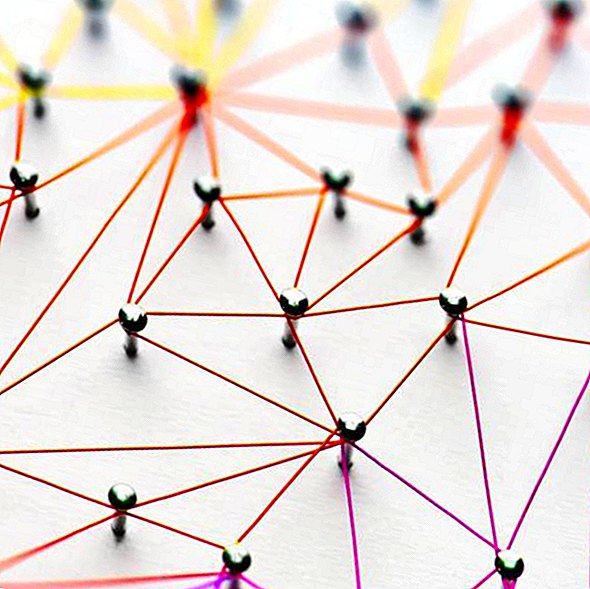Building a network: That's how it works

There are these ideas that settle in an unreachable Hirnecke and time to gnaw on a gnawing: Actually, you wanted to try out pottery forever, that could be a nice new hobby. And feed the Barbary apes in Gibraltar, a lifelong dream! If you only know somebody who has done something like this before and could give you some good tips ...
A large network opens up new possibilities
Those who maintain their own network have a direct contact person ready for many such cases. One could call such a collection of contacts a personal archive of people, this term would not sound too administrative - nor would it do justice to living relationships. A network is a group of people that you get to know in order to benefit from their knowledge, to think outside the box and to be inspired. Unlike friendships or acquaintances, which usually happen by chance, you strategically invite people into your network who can or have experienced something particularly good that interests you as well. Of course, if you like to paint, you can surround yourself with people who share that passion. That brings new impulses and unexpected cross connections. The more colorful a network, the more useful it is for unexpected concerns or new projects, such as when you suddenly quickly find a good specialist for a specific medical problem and not only cumbersome to read through Internet forums or browse in journals.
Strategic approach
It is important to think long term. And not to expect that today you get to know someone and tomorrow has a direct benefit of it. But where do you find all these exciting, useful people? In the beginning you have to think strategically, even if you do not know about interpersonal contacts. You can meet inspiring people at events that interest you and, for that, study the offer of foundations and associations.
Show honest interest
If you love art and would like to meet new people from this area, you can visit exhibition openings where the artist presents his or her own work. After the official part is then usually still opportunity for personal discussions. Ideally, you ask a concrete question about the exhibition or the curriculum vitae - honest interest in the other is a good basis for a contact beyond this brief meeting.
Offer benefits
With each new contact, one should ask oneself: What use can I offer this person? A network works best when both sides have something of it. Perhaps the painter will be pleased to be in contact with a café owner who regularly organizes exhibitions in his restaurant.
Others connect
The most stable is the own network, if you connect the people in it with each other. A good option for this is a regular round table, such as a breakfast once a month, organized by yourself and inviting people for whom it might be interesting to sit down and talk. It does not matter if you do not know the participants very well, because if everyone talks to each other, you can relax and listen to yourself for the first time. These laps are often the liveliest when the interests of the guests at first glance have nothing to do with each other. If you ask each participant to bring another guest, not only the invitees take new contacts home, also their own network grows by itself.
Stay relaxed
Important is: Network contacts are not friendships - they may well come from it, but it is also perfectly fine to have people in your network with whom you do not necessarily want to drink a wine every week. It is enough if you are in principle well-disposed, so you can also trust their tips. And with a much better feeling, as if one would accept advice from complete strangers in the net.










